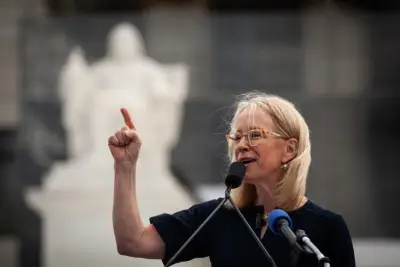Medicaid cuts a step closer as Congress moves on budget reconciliation

WASHINGTON As the U S House prepares to vote on a sweeping budget blueprint that was approved by the U S Senate last week sizable cuts to Medicaid are one step closer and just who would bear the brunt of those cuts is coming into better focus The budget reconciliation bill itself does not mandate any cuts to Medicaid the executive soundness scheme for low-income Americans that s called Curative Assistance in Minnesota But the budget resolution instructs the House Strength and Commerce Committee to cut the Department of Fitness and Human Services budget by billion a target experts say can t be met without slashing Medicaid So if the budget resolution is approved by the House Congress would have to come up with a way to find billion in savings when it drafts the spending bills that fund the federal administration There are several tactics to shrink federal spending on Medicaid a joint federal-state project that requires Minnesota to pay about of the cost to cover nearly million state residents One way to cut the cost of this venture is to reduce the benefits to enrollees something President Trump and GOP leaders in Congress have vowed not to do Another is to reduce the number of people eligible for the scheme Medicaid has been a historical target for Republicans who have long sought to impose national work requirements on Medicaid recipients That means that able-bodied adults without children must work or be actively looking for work to qualify for the venture The Center for Budget and Agenda Priorities estimates that at least percent of Minnesotans enrolled in Medicaid would lose coverage if work requirements were mandated and challenged the idea that work requirements were needed Work requirements are burdensome and unnecessary because of people who receive Medicaid are already working full or part time or they are not working because they are a caregiver have an illness or disability or are attending school the center revealed But work requirements may not be enough to reduce the Medicaid population so the GOP-led House and Senate may seek to eliminate a key provision of the Affordable Care Act that expanded Medicaid coverage to people who earned a little more than those on traditional Medicaid Unlike traditional Medicaid in which the cost of the undertaking is more evenly shared the federal leadership pays of covering the expansion population and the state only The Minnesota Department of Human Services revealed that in the average monthly enrollment in the Medicaid expansion group was Morrison sounding the alarm on cutsThe budget reconciliation bill the House will consider this week calls for about trillion in tax cuts which would be partially offset by trillion in spending cuts including the projected cuts to Medicaid The tax cuts would extend the ones implemented during Trump s first term in office which will expire at the end of the year The reconciliation bill would also lift the debt limit by trillion It was approved by the U S Senate on a party-line vote and expected to pass the U S House on a partisan basis too although several ultraconservative Freedom Caucus GOP House members are balking because the law s tax cuts are not fully funded For U S Rep Kelly Morrison D- rd District an OB-GYN and founding member of the Democratic Doctors Caucus the looming cuts to Medicaid have provided the freshman lawmaker with a mission The consequence of cutting Medicaid deeply is horrifying to me Morrison commented She explained children and about one-third of the childbirths in Minnesota are covered through Medicaid I ve been sounding the alarm in every way I can Morrison commented She mentioned she s visited hospitals and wellness clinics in her suburban Twin Cities district and they are all so afraid A large number of say they will have to shut their doors Morrison revealed She reported she s also trying to persuade GOP colleagues to keep their hands off Medicaid but they appear hard to convince Multiple Republicans insist Medicaid savings will be limited to the ferreting out of fraud waste and abuse But experts say that would not be nearly enough to fulfill the savings mandated by the budget reconciliation bill And it s unlikely Minnesota or any other state will be able to pick up the additional cost of providing robustness care for low-income Americans who don t have coverage on the job and can t afford private healthcare insurance State Rep Aisha Gomez DFL-Minnepolis has introduced a bill that would establish a new individual income tax tier for Minnesotans who earn more than million to offset any losses for Medicaid funding which could be as much as billion a year But that bill is likely to face high hurdles On Monday Morrison read a letter sent to Trump and Minnesota s Republican members of Congress from a group of GOP state lawmakers on the House floor Just to emphasize what you already know Medicaid includes services and care for the seniors and those with disabilities not just vitality care for the poor explained the letter which was signed by six GOP state senators and eight GOP state House members Additionally nearly of all Medicaid enrollees are children U S Rep Betty McCollum D- th District hopes to also take to the House floor to protest cuts to Medicaid On Tuesday she sent a letter to House Minority Leader Hakeem Jeffries asking for permission to hold a one-on-one debate known as a colloquy on the House floor Republican members of Congress repeatedly denied that painful cuts will be made McCollum wrote Jeffries However the nonpartisan Congressional Budget Office has validated that based on the text of the budget proposal there is nowhere else for cuts of that magnitude to come from other than the critical healthcare programs relied upon by everyday Americans to survive The post Medicaid cuts a step closer as Congress moves on budget reconciliation appeared first on MinnPost


